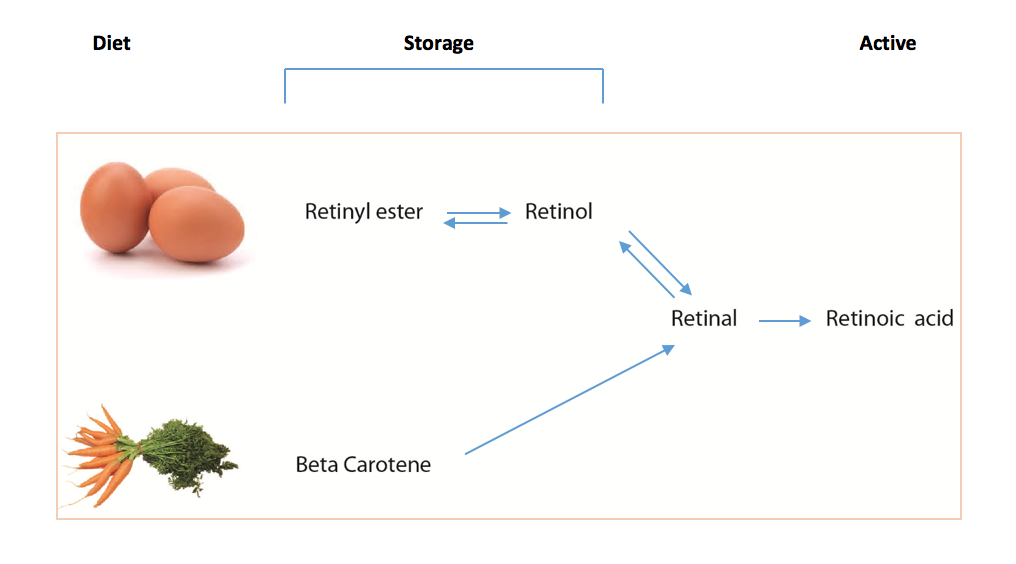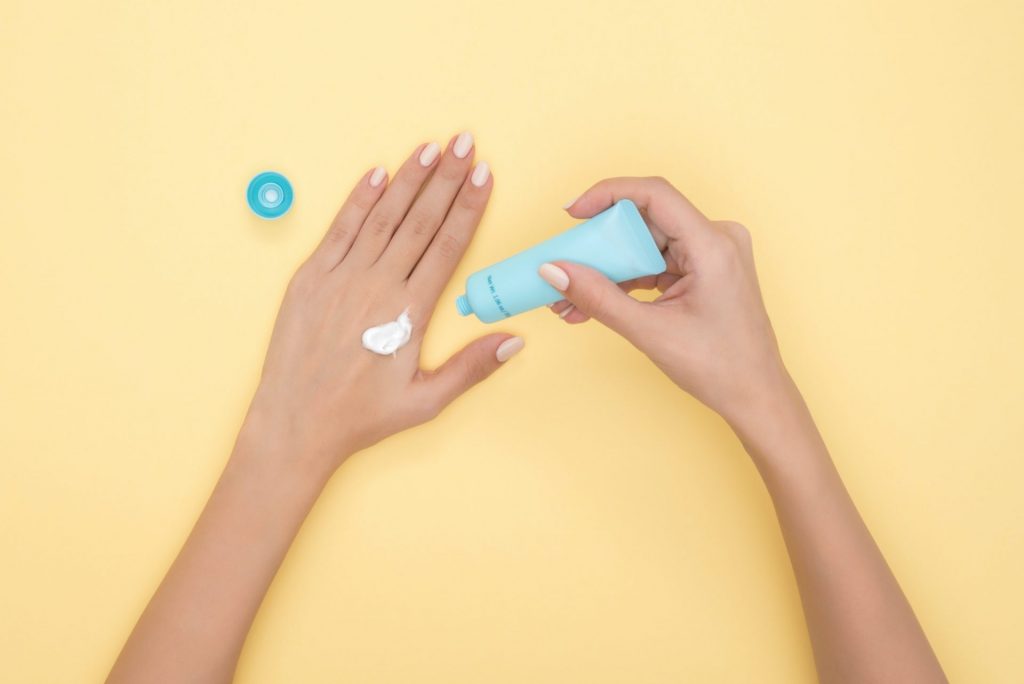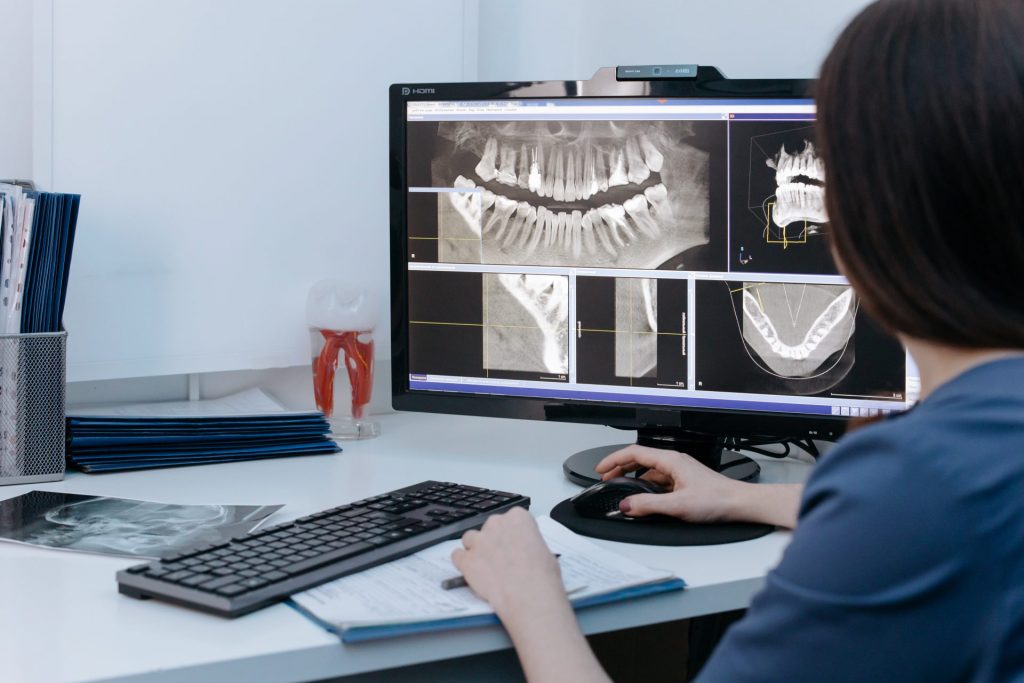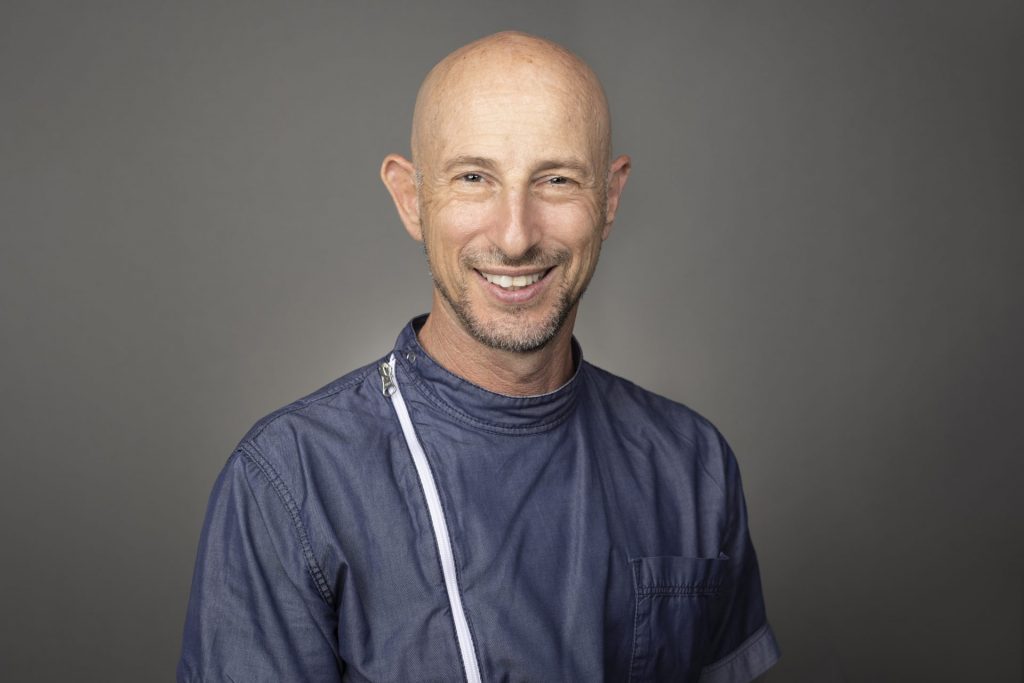While most of us know that Vitamin A is one of the most important ingredients in a skin care regime, few know that there are more than nine commonly used forms of Vitamin A. And based on the evidence, Retinal, the one used least often is the one we should be using!
What does Vitamin A do?
Vitamin A is the most studied and effective ingredient in skin care. And Retinoic Acid is the king of Vitamin A. We have several receptors in our skin that specifically respond to Retnoic acid. When triggered, these receptors lead to skin renewal. The result is thicker, more elastic skin, a decrease in pigmentation and improved barrier function.

Isn’t all Vitamin A the same?
Most of the work studying Vitamin A has been performed on Tretinoin[1] (products, containing Tretinoin – which is the pharmaceutical form of Retinoic Acid are prescription only). And it is very effective, but as is so often the case, with effectiveness comes downside. 40% to 50% of users will experience redness, dry skin and irritation. For most, if they push on, the skin should settle down and the results will come. There are other forms of prescription only vitamin A and while they may irritate less than Tretinoin, it is a matter of degrees. And for most who experience irritation, “pushing through” is not an exciting prospect. As a result, many other forms of Vitamin A are used[2] in skin care in the hope that we will get results without the dry, red, itchy face.
There are quite a few forms of non-prescription Vitamin A that are used in skin care (eg. Retinol (with an “O”, Retinyl Palmitate and Retinyl Glucoside) which are far less irritating than the prescription form. But the evidence either says they don’t work or don’t work so well3. There is however one non-prescription form of Vitamin A which has strong evidence of effectiveness – it’s called Retinal[3] (with an “A”) or Retinaldehyde- the current “must-have” ingredient in anti-aging skin care. But perversely less than 2% of brands use Retinal as their key active ingredient.
Retinal has similar[4] effectiveness to Tretinoin[5] and is well tolerated, with a very low level of resulting irritation and has no long term side effects[6]. But if it is so great, why isn’t it used by more skin care brands? High cost is one reason. It is also difficult to source and it is also unstable (making it both difficult and expensive to transport, store and use in formulations).
What makes Retinal better?
The way we normally get our Vitamin A is from food. (Interestingly, while we think of carrots as being a good source of Vitamin A, the best sources are cod liver oil, fish, beef liver, eggs and grass fed dairy products. Vegetables are quite a poor source of Vitamin A). The conversion process from food we eat to Retinoic Acid can be illustrated as follow:

So the reason Retinoic Acid can be irritating is that it is that it cannot be converted back to a form that can be stored in the body. If applied directly to the skin and the amount applied is in excess of the ability of our skin to process it, the remaining amount, will irritate the skin. Other forms of Vitamin A (eg. Retinol, Retinal and Retinyl ester) can either be stored directly or converted to a form that our bodies can store and are therefore far less irritating.
When Retinal is applied to the skin, it is converted directly into Retinoic acid (to the extent that the skin can process it), making it very effective. And because our bodies only convert the amount that can be processed, there is no excess Retinoic acid to irritate.
By contrast, when applying Retinol to our skin, it first needs to be converted to Retinal and then to Retinoic Acid. That makes it a much longer journey and much of the Retinol is “lost” before being converted to Retinoic acid.
To give an idea of how much more effective Retinal is than Retinol: Retinoic Acid is usually prescribed at concentrations of 0.05% or 0.1%. Those are about the same concentrations that Retinal based products use. When it comes to Retinol, because the conversion process is inefficient, the concentration has to be about 10 times higher (between 0.5% and 1% concentration) and its effectiveness is far less certain. The higher concentration of Retinol also often makes it more irritating that Retinal based products.
Bottom Line. Retinal is the most effective, least irritating form of Vitamin A!
Things to look for in Vitamin A products
There are a few manufacturers who do use Retinal in their products. A few things to keep in mind when you are looking to use products with Retinal. 1) concentrations of between 0.05% and 0.1% are most commonly used, are effective and well tolerated; 2) Preferably look for a product only with Retinal (and not Retinol as well) in the ingredient list; 3) Stay away from “day” products containing Retinal and; 4) Don’t use any form of Vitamin A while pregnant or breast feeding.
Evinesse was created because it was just so hard to find skin care products using first class ingredients, such as Retinal. When we started looking, ironically we found that in the rare instances that Retinal was used, it was often formulated along with other ingredients that didn’t make sense, like Retinol or with potentially harmful or irritating ingredients (eg. Parabens or perfumes). As for Australian made, ethical and affordable products- none! So Renew Night Cream was created – the only Vitamin A night cream that ticks all the boxes.
Note: Vitamin A products should not be used by women who are pregnant or breastfeeding. They can also increase sensitivity to the sun. So sun protection should be used during daylight hours.
[1] Rivers JK. 2008
[2] Mukherjee S, Date A, Patravale V, Korting HC, Roeder A, Weindl G. 2006
[3] Kajal Babamiri, Rezab Nassab, Aug 2009
[4] Boisnic S, Branchet‐Gumila MC, Le Charpentier Y, Segard C. 1999
[5] Didierjean L, Tran C, Sorg O, Saurat JH. 1999
[6] Sachsenberg‐Studer EM. 1999






